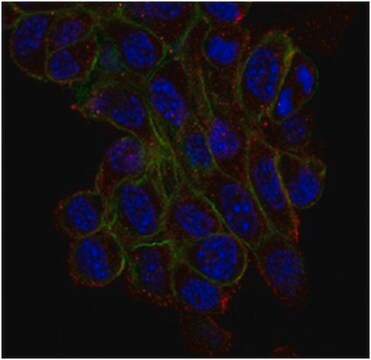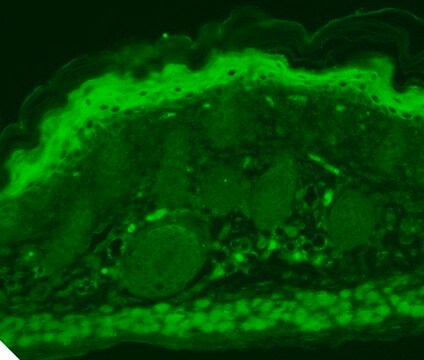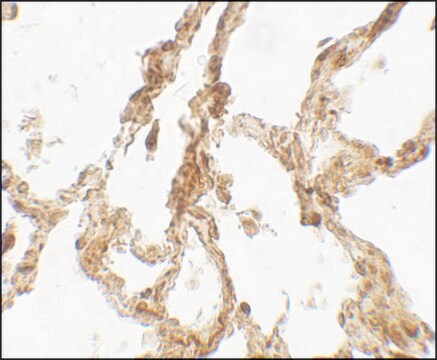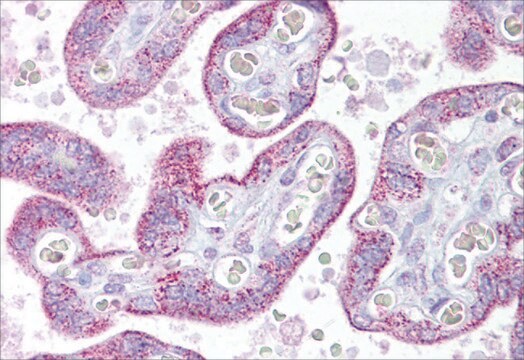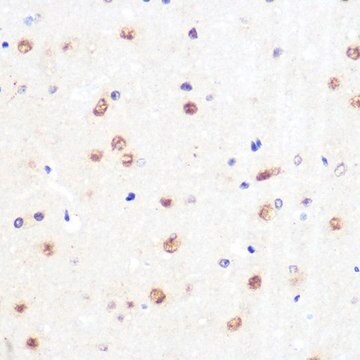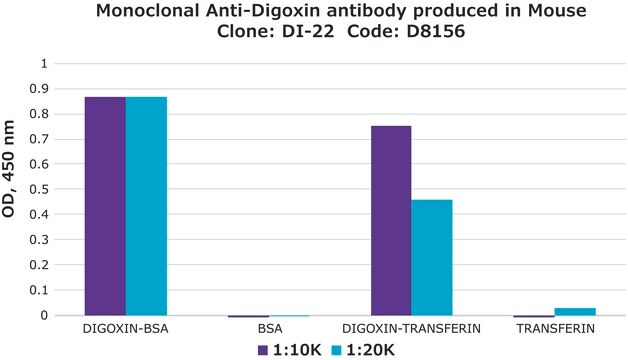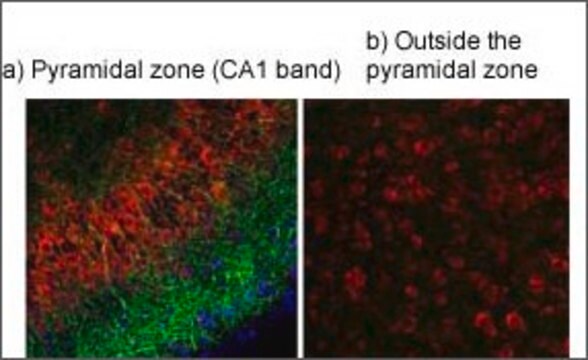T9075
Anti-TRPV4 antibody produced in rabbit
affinity isolated antibody, lyophilized powder
Synonym(s):
Anti-OTRPC4, Anti-Transient Receptor Potential Channel V4
Sign Into View Organizational & Contract Pricing
All Photos(4)
About This Item
Recommended Products
biological source
rabbit
Quality Level
conjugate
unconjugated
antibody form
affinity isolated antibody
antibody product type
primary antibodies
clone
polyclonal
form
lyophilized powder
species reactivity
rat
technique(s)
western blot: 1:200 using ND7/23 (mouse neuroblastoma X rat DRG neuron hybrid cell line) lysate
UniProt accession no.
shipped in
wet ice
storage temp.
−20°C
target post-translational modification
unmodified
Gene Information
rat ... Trpv4(66026)
Immunogen
synthetic peptide CDGHQQGYAPKWRAEDAPL corresponding to residues 853-871 of rat TRPV4.
Physical form
Lyophilized from phosphate buffered saline containing 1% BSA and 0.05% sodium azide.
Disclaimer
Unless otherwise stated in our catalog or other company documentation accompanying the product(s), our products are intended for research use only and are not to be used for any other purpose, which includes but is not limited to, unauthorized commercial uses, in vitro diagnostic uses, ex vivo or in vivo therapeutic uses or any type of consumption or application to humans or animals.
Not finding the right product?
Try our Product Selector Tool.
Storage Class Code
11 - Combustible Solids
WGK
WGK 3
Flash Point(F)
Not applicable
Flash Point(C)
Not applicable
Choose from one of the most recent versions:
Already Own This Product?
Find documentation for the products that you have recently purchased in the Document Library.
Bernd Nilius et al.
American journal of physiology. Cell physiology, 286(2), C195-C205 (2004-01-07)
The vanilloid receptor-1 (VR1, now TRPV1) was the founding member of a subgroup of cation channels within the TRP family. The TRPV subgroup contains six mammalian members, which all function as Ca2+ entry channels gated by a variety of physical
Guida Landouré et al.
Nature genetics, 42(2), 170-174 (2009-12-29)
Charcot-Marie-Tooth disease type 2C (CMT2C) is an autosomal dominant neuropathy characterized by limb, diaphragm and laryngeal muscle weakness. Two unrelated families with CMT2C showed significant linkage to chromosome 12q24.11. We sequenced all genes in this region and identified two heterozygous
Chou-Long Huang
Journal of the American Society of Nephrology : JASN, 15(7), 1690-1699 (2004-06-24)
ABSTRACT. The transient receptor potential (TRP) superfamily of proteins is cation-selective ion channels with six predicted transmembrane segments and intracellularly localized amino and carboxyl termini. Members of the TRP superfamily are identified on the basis of amino acid sequence and
Lyudmyla Borysova et al.
Nature protocols, 16(10), 4650-4675 (2021-08-18)
Ca2+ handling within cardiac myocytes underpins coordinated contractile function within the beating heart. This protocol enables high spatial and temporal Ca2+ imaging of ex vivo multicellular myocardial strips. The endocardial surface is retained, and strips of 150-300-µm thickness are dissected
Ashwini Saxena et al.
American journal of physiology. Regulatory, integrative and comparative physiology, 307(8), R945-R955 (2014-08-01)
Transient receptor potential vanilloid family type 4 (TRPV4) channels are expressed in central neuroendocrine neurons and have been shown to be polymodal in other systems. We previously reported that in the rodent, a model of dilutional hyponatremia associated with hepatic
Our team of scientists has experience in all areas of research including Life Science, Material Science, Chemical Synthesis, Chromatography, Analytical and many others.
Contact Technical Service